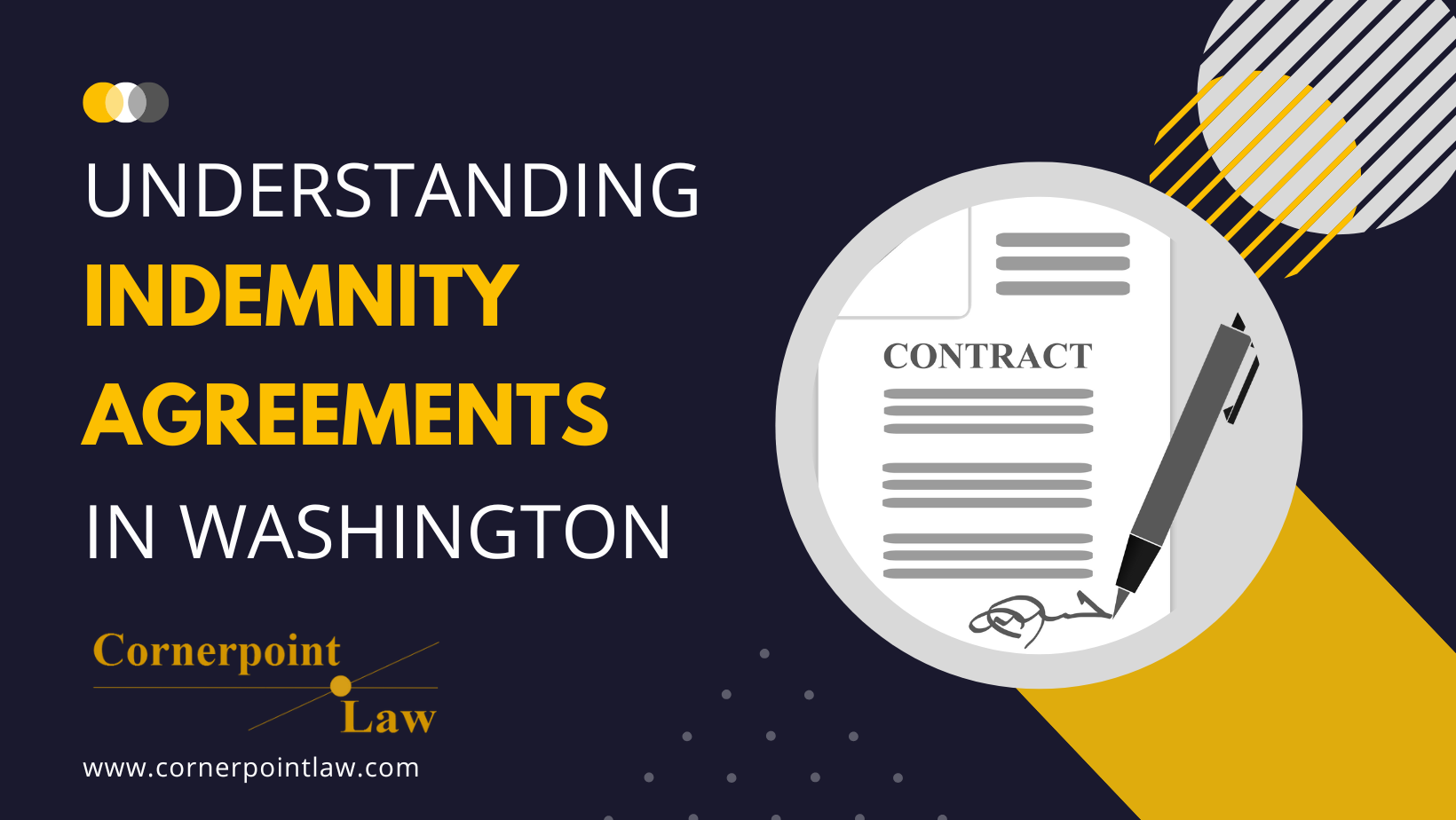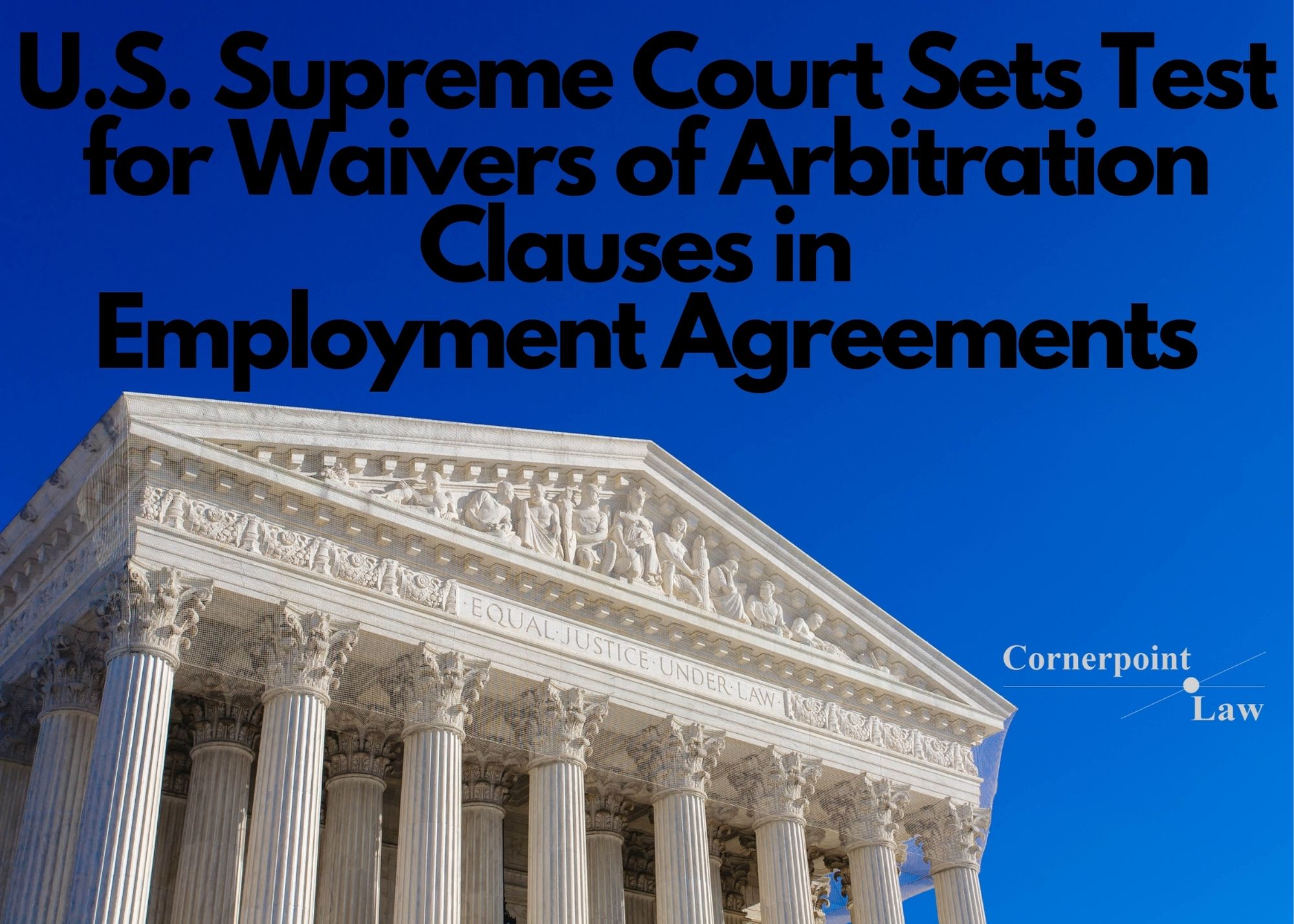Doubling Down on Employment Contracts – A Cornerpoint Case Pop
August 27, 2019
Unauthorized use and/or duplication of blogposts without express and written permission is strictly prohibited. Excerpts and links may be used, provided that full and clear credit is given, and with appropriate and specific direction to the original content.
The author of this post can be reached by phone at 206-693-2718 or by email.
By Stacia Hofmann
Cornerpoint Case Pops are dedicated to summarizing relevant, new cases — and their business and risk management lessons — in bite-size posts.
By default rule, employment in Washington is “at will,” which means that either the employer or the employee may terminate the employment relationship at any time.1 This default rule may be modified by an employer and employee entering into an employment agreement that changes the status quo and sets the duration of employment.
So what happens if an employment contract guarantees a certain length of employment, but the employer breaches the contract early? The short answer may surprise business owners: the employer is potentially liable for double the wages contemplated in the contract, as well as the employee’s attorneys’ fees. Following a recent Washington Court of Appeals case as a guide, this blogpost is focused on the legal repercussions of terminating an employee before their contract ends.
The Case: Essig v. Lai, Washington Court of Appeals, Division I, No. 78014-0-I (July 8, 2019)
Case Background
The employee and employer entered into an employment agreement. The contract stated that the employment period was for a term of two years. The employee would earn an annual salary of $114,000.
About six weeks into the new job, the employee had not received any pay, so he notified the employer that the employer was in breach of contract and that he was not going to continue to report to work.

Payment in peanuts is not acceptable.
Washington’s Wage Rebate Act and Double Damages
Under Washington’s Wage Rebate Act, RCW Ch. 49.52, an employer who does not pay owed wages is liable for double the amount of wages (called exemplary damages) plus attorneys’ fees if the employer withholds the wages willfully and with intent to deprive the employee of the wages, and the employee does not consent to the withholding. Furthermore, withholding wages is a misdemeanor, and the individuals who violated the law are exposed to personal liability (it’s not just the business that is at risk).
What Happened in the Essig Case?
 The employee filed suit against the employer, and was awarded $228,000 ($114,000 per year) for lost wages under the contract. Not only that, but the judge doubled the amount, and awarded the employee an additional $228,000 in exemplary damages, plus his attorneys’ fees.
The employee filed suit against the employer, and was awarded $228,000 ($114,000 per year) for lost wages under the contract. Not only that, but the judge doubled the amount, and awarded the employee an additional $228,000 in exemplary damages, plus his attorneys’ fees.
The employer argued that the extra $228,000 was not warranted because the employee did not actually perform two years’ worth of work. Remember – the employee left the job a few weeks in because he had not been paid.
The Court of Appeals disagreed with the employer. First, the employee had a contractual right to wages of $228,000 over the course of two years under his employment agreement. The employee was not paid. Second, the employer knew that the contract provided for wages of $114,000 per year, so there was enough evidence that the withholding of the wages was willful and intentional. Finally, the employee did not agree to the withholding of wages. Thus, the award of $446,000 in double wages was proper.
In sum, the employer was ordered to pay much more than he would have paid in salary, plus he missed out on all of the benefits that could have resulted from the employee’s work, time, and contributions.
Risk Management Tips
There is great flexibility in allowing employment to end at will, and most employers prefer it. However, on occasion, an employer may want (or need) an employment agreement in order to keep the employee on payroll for a set period of time. In those situations, the employer should understand that if it breaches the contract, it is essentially doubling down on its bet, and may very well be liable to the employee for twice the employee’s wages.
There are ways to personalize an employment agreement so that it fits a business’s specific risk tolerance. This may include a severance provision, a shorter term length, justifiable reasons for termination, and incentives (i.e., employment remains terminable at will, but perks are guaranteed for staying). Email or call me to see if Cornerpoint can help with your contract or employment questions.
This blog is for informational purposes only and is not guaranteed to be correct, complete, or current. The statements on this blog are not intended to be legal advice, should not be relied upon as legal advice, and do not create an attorney-client relationship. If you have a legal question, have filed or are considering filing a lawsuit, have been sued, or have been charged with a crime, you should consult an attorney. Furthermore, statements within original blogpost articles constitute Stacia Hofmann’s opinion, and should not be construed as the opinion of any other person. Judges and other attorneys may disagree with her opinion, and laws change frequently. Neither Stacia Hofmann nor Cornerpoint Law is responsible for the content of any comments posted by visitors. Responsibility for the content of comments belongs to the commenter alone.
- Importantly, at-will employment does not mean that an employer may terminate an employee for any reason whatsoever. Employment decisions that violate an employee’s civil rights, are discriminatory or retaliatory, or amount to wrongful discharge are not allowed, but these topics are for another day. ↩




